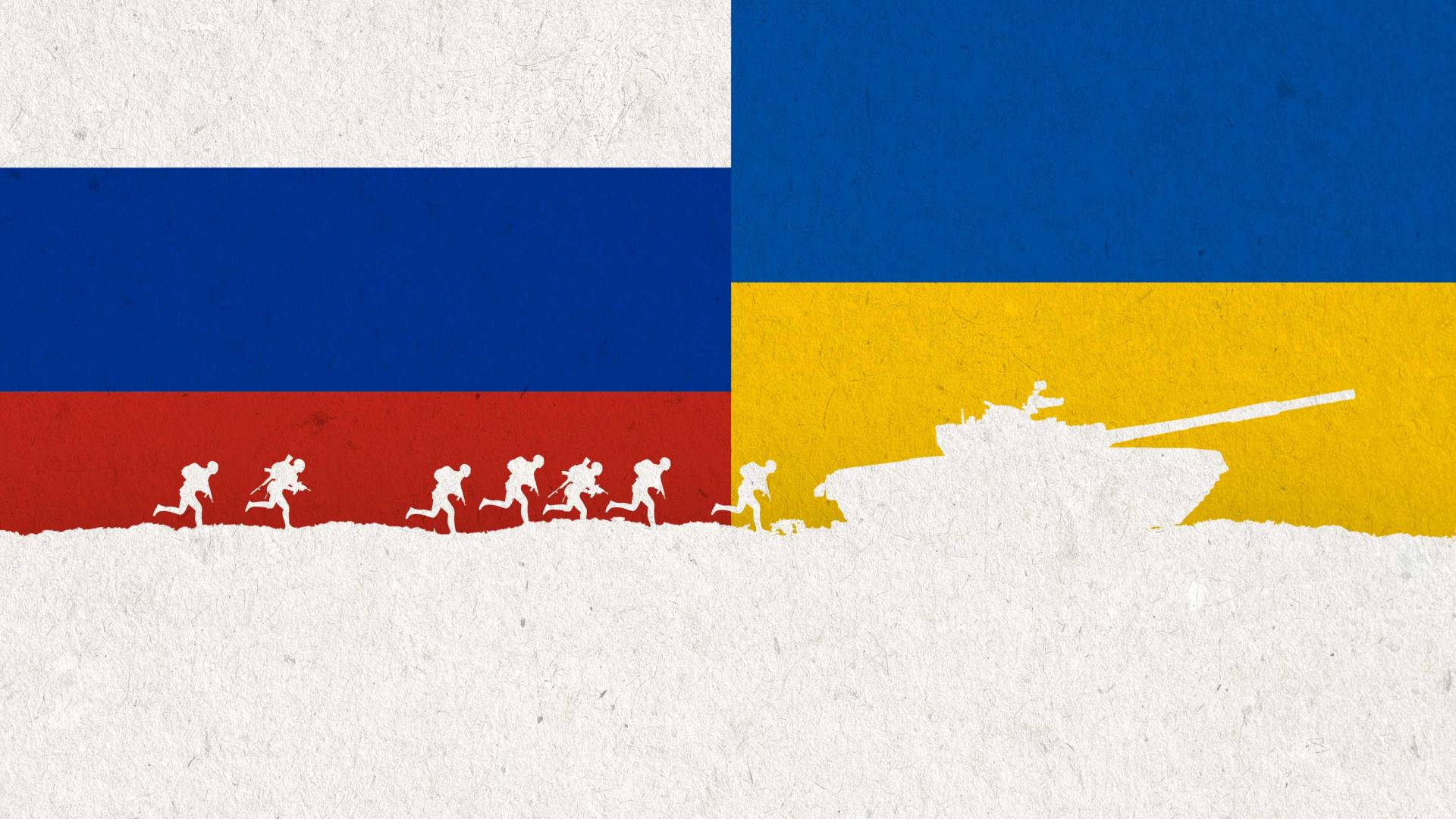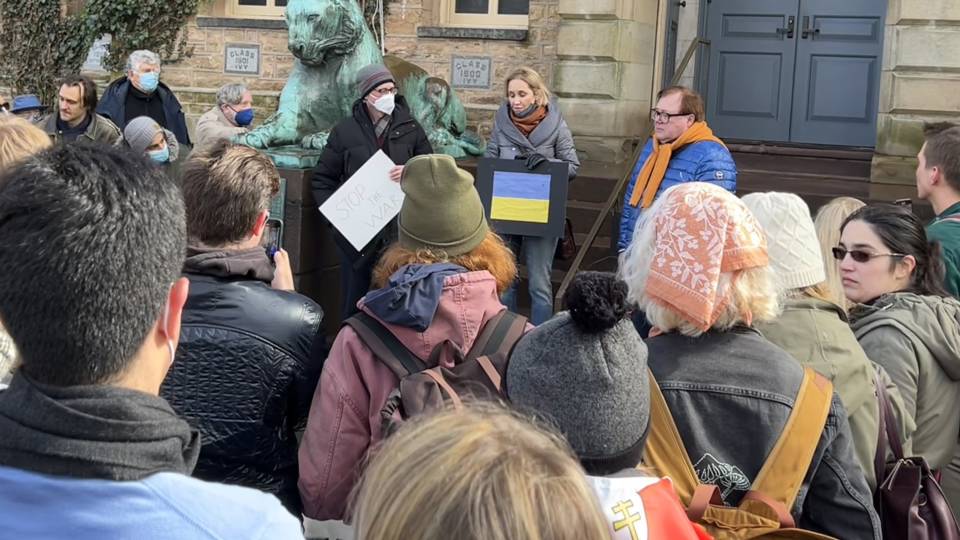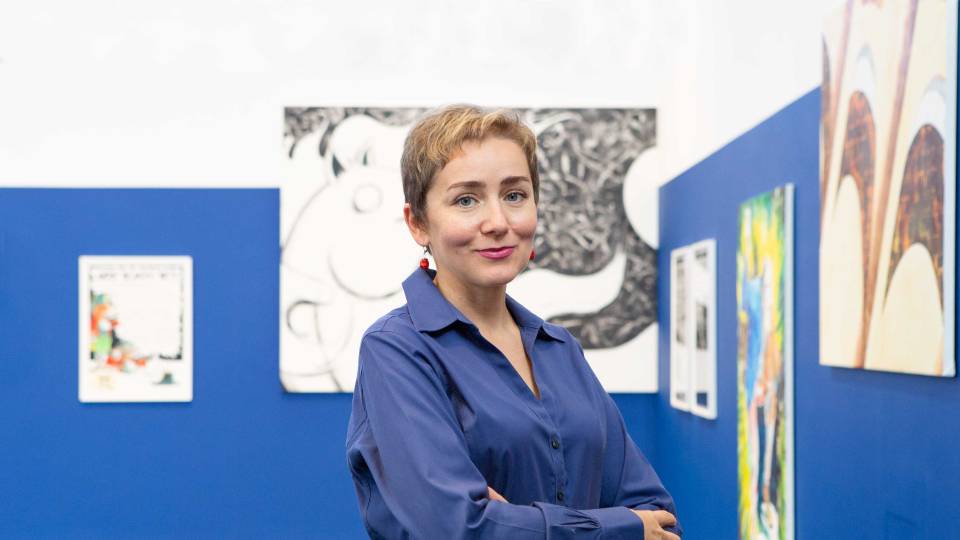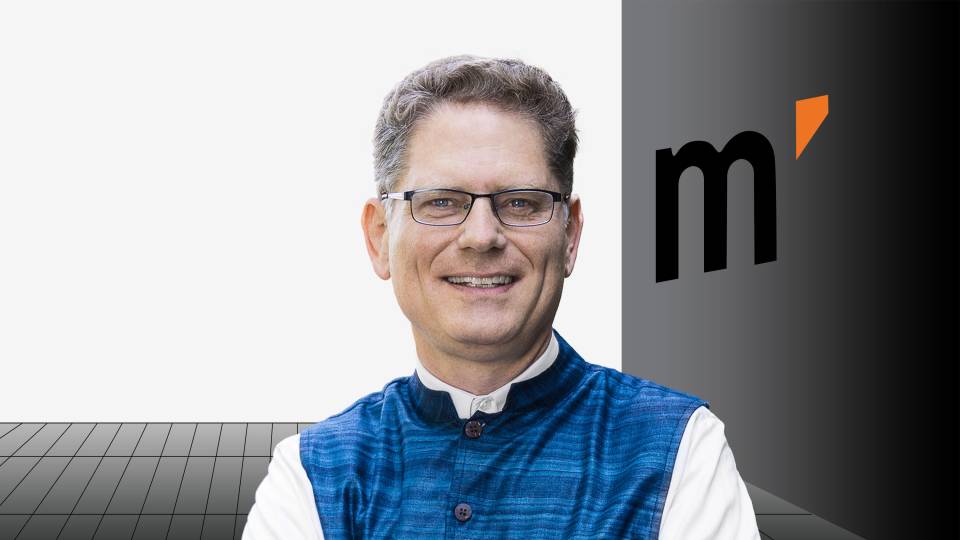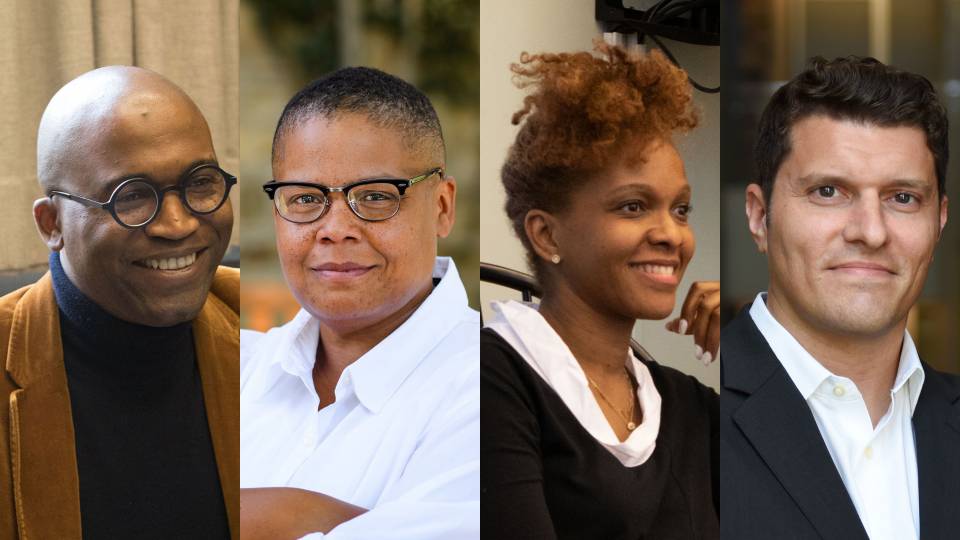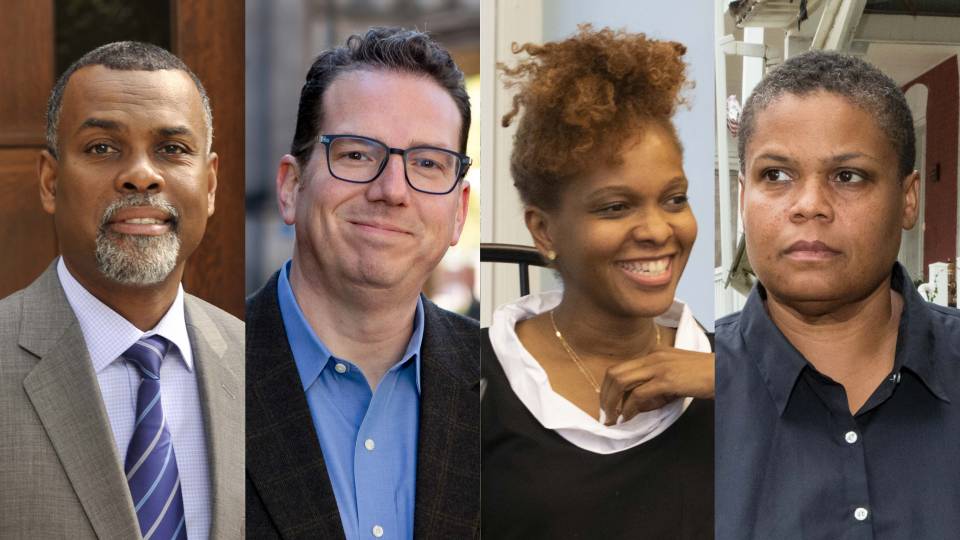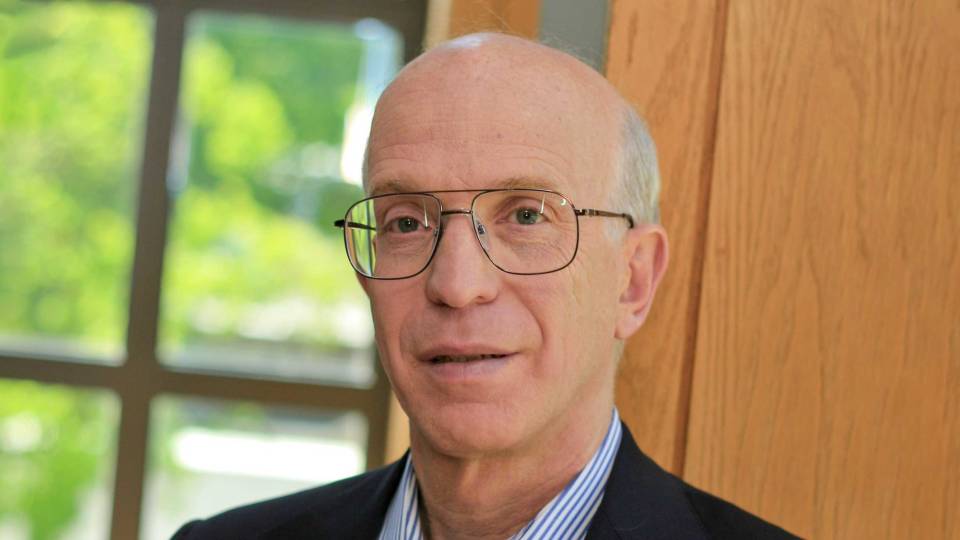As the world grapples in real time with the Russian invasion of Ukraine, Princeton scholars are speaking to the moment. Many Princeton faculty members, alumni, staff and students are sharing their expertise and perspectives in op-eds, on television and cable news programs, online and in print publications, on virtual panels and across social media.
Read, view and listen to some of their contributions to the international conversation. We will continue to update this roundup.
Expert panels/public conversations
Upcoming
-
“Let’s Talk About: World War III?(Link is external),” noon-1 p.m., Friday, May 6. Moderator Razia Iqbal, anchor of the BBC World Service’s Newshour, Ferris Professor of Journalism and visiting lecturer in the Humanities Council will lead a a conversation on where we are now and what could happen next with experts from Princeton: Andrea Kendall-Taylor, a 2000 graduate and senior fellow and director, Transatlantic Security Program, Center for a New American Security; Zia Mian, senior research scholar and co-director of Princeton’s Program on Science and Global Security; and Andrew Moravsckik, professor of politics and international affairs, and director of the Leichtenstein Institute on Self-Determination. Register for the Zoom webinar(Link is external) or view live on YouTube. This event is hosted by the Princeton School of Public and International Affairs with support from the Leichtenstein Institute on Self-Determination, the Program in Journalism, the Program on Science and Global Security and Princeton’s Office of Communications.
Previously
- Princeton Public Lectures: Ambassador Marie Yovanovitch(Link is external), 6-7:15 p.m. Tuesday, April 12, Richardson Auditorium. “Lessons from the Edge,” a conversation with Kim Lane Sheppelle.” Yovanovitch is the former U.S. ambassador to Ukraine (2009-17) and a senior fellow in the Russia and Eurasia Program at the Carnegie Endowment for International Peace. Sheppelle is the Laurance S. Rockefeller Professor of Sociology and International Affairs and the University Center for Human Values. Free tickets(Link is external) are required for in-person participation. Attendees must attest to being fully vaccinated and boosted. If you are unable to participate in-person, you may watch the live event via Zoom webinar; register online(Link is external).
- “Energy and Economics — Impacts of the Russian Invasion(Link is external),” 3 p.m. Friday, March 25. Moderator Razia Iqbal, anchor of the BBC World Service’s Newshour, Ferris Professor of Journalism and visiting lecturer in the Humanities Council will lead a discussion with economic and energy experts from Princeton: Markus Brunnermeier, the Edwards S. Sanford Professor of Economics; Meg Jacobs, senior research scholar and lecturer in public affairs; and Jesse Jenkins, assistant professor of mechanical and aerospace engineering and the Andlinger Center for Energy and the Environment. Register for the Zoom webinar(Link is external) or view live on YouTube(Link is external). This event is hosted by the Princeton School of Public and International Affairs with support from the Andlinger Center for Energy and the Environment, the Department of Economics, the Program in Journalism and the Office of Communications.
- “Understanding Our New World,” 10 a.m. Central (11 a.m. EDT) Thursday, March 17, with Julian Zelizer, the Malcolm Stevenson Forbes, Class of 1941 Professor of History and Public Affairs, on Paul Simon Public Policy Institute Virtual Conversation Series, speaking with Institute Director John Shaw on the roots of political polarization in the U.S. and Russia’s invasion of Ukraine. Registration required; register online(Link is external).
- Freedom and Self-Determination in Times of Aggression(Link is external),” 10-11 a.m. Wednesday, March 16, 019 Bendheim Hall, and livestreamed(Link is external) on the University’s YouTube channel. Public statement by Her Excellency Dominique Hasler, Minister of Foreign Affairs, Education and Sport of the Principality of Liechtenstein. Hosted by Princeton’s Liechtenstein Institute on Self-Determination. Princeton students, faculty and staff who are permitted on campus are welcome to attend the event in person. Due to Princeton University Covid restrictions, we are obligated to keep a record of every person that attends. Therefore, in order to attend the event in person, you must RSVP(Link is external).
- India and China’s response to Russia’s invasion of Ukraine(Link downloads document),” noon Tuesday, March 15, Louis A. Simpson Building, Room A71. Princeton experts will unpack India and China’s response to Russia’s invasion of Ukraine in the context of Asian and global geopolitics, and what it means for the United States. Moderated by Anu Ramaswami, the Sanjay Swani ’87 Professor of India Studies and director of the M.S. Chada Center for global India. Panelists will share historical perspectives, interpretations of current events and discuss potential future trajectories. Featuring Pratap Bhanu Mehta, the Laurence S. Rockefeller Professor for Distinguished Teaching; Iryna Vushko, assistant professor of history and a native of L’viv, Ukraine; and Yu Xie, the Bert G. Kerstetter ’66 University Professor of Sociology and director of the Center for Contemporary China. Registration required, open to Princeton University ID holders only; register online(Link downloads document).
- “Let’s Talk About: Russian Misinformation and Cybersecurity(Link is external),” noon Friday, March 11, panel moderated by Asha Rangappa, a 1996 alumna, CNN legal and national security analyst and former FBI agent. Featuring Jacob Shapiro, professor of politics and international affairs; Sergey Sanovich, postdoctoral research associate, Center for Information Technology Policy; and Alicia Wanless, director of the Partnership for Countering Influence Operations, Carnegie Endowment for International Peace. This weekly series is hosted by the Princeton School of Public and International Affairs with support from Princeton’s Office of Communications. Watch on YouTube(Link is external).
- Why don’t Russians rebel? Putin’s war and antiwar protests in Russia(Link is external),” noon Monday, March 7, panel moderated by Ekaterina Pravilova, the Rosengarten Chair of Modern and Contemporary History, professor of history, and acting director of the Program in Russian, East European and Eurasian Studies. Featuring: Tikhon Dzyadko, editor-in-chief, TV Rain; Katerina Kotrikadze, head of the news department, TV Rain; and Greg Yudin, sociologist, Higher School of Economics, Moscow. Registration required. Register online(Link is external).
- Ukraine — Global Ramifications(Link is external),” noon Friday, March 4, panel moderated by Razia Iqbal, visiting Ferris Professor of Journalism, visiting lecturer in the Humanities Council and BBC Newshour host. Featuring: Filiz Garip, professor of sociology and public affairs; Brian Katulis, MPA ’00 and senior fellow at the Center for American Progress; and Michael Reynolds, associate professor of Near Eastern studies. Register for the Zoom webinar(Link is external) or view live on YouTube(Link is external). This weekly series is hosted by the Princeton School of Public and International Affairs with support from Princeton’s Office of Communications. Watch the Feb. 25 panel “Princeton experts discuss the Russian invasion of Ukraine” on YouTube(Link is external).
- Implications of Sanctions on the Russian Economy(Link is external),” 12:30 p.m. Thursday, March 3. A webinar, hosted by the Markus Academy, with Sergei Guriev, professor at Sciences Po and formerly the chief economist at the EBRD and rector of Moscow’s New Economic School. Introductory remarks by Markus Brunnermeier, the Edwards S. Sanford Professor of Economics and director of Princeton’s Bendheim Center for Finance.
- “The Ukraine Crisis and World Order(Link is external),” March 1. A conversation, hosted by the Princeton Institute for International and Regional Studies and Reimagining World Order, with Jeremy Adelman, the Henry Charles Lea Professor of History; Mark Beissinger, the Henry W. Putnam Professor of Politics; G. John Ikenberry, Albert G. Milbank Professor of Politics and International Affairs; Melissa Lee, assistant professor of politics and international affairs; and Iryna Vushko, assistant professor of history and a native of L’viv, Ukraine.
Faculty and leadership
In the news in April and May
- Stephen Kotkin, the John P. Birkelund ’52 Professor in History and International Affairs, co-director of the Program in History and the Practice of Diplomacy, and director of Princeton Institute for International and Regional Studies, reviews Richard Overy’s new book “Blood and Ruins: The Last Imperial War, 1931-1945” in Foreign Affairs: “The Cold War Never Ended: Ukraine, the China Challenge and the Revival of the West(Link is external).”
- Kim Lane Sheppelle, the Laurance S. Rockefeller Professor of Sociology and International Affairs and the University Center for Human Values, quoted by ABC News in "UN Security Council’s inaction on Ukraine prompts questions on reform(Link is external).”
- Rick Barton, lecturer of public and international affairs, op-ed in the New York Daily News, “Bad news for Putin and Russia: Wars of choice often fail(Link is external).”
- Aaron Friedberg, professor of politics and international affairs and author of the recently published “Getting China Wrong,” in Politico, “Russia crisis gives EU a grim sense of what’s to come with China(Link is external).Meg Jacobs, senior research scholar, Princeton School of Public and International Affairs, quoted in The New York Times, ”Putin Reminds the World He Still Wields a Powerful Economic Weapon(Link is external).”
In the news in March
- Miguel Centeno, the Musgrave Professor of Sociology, in Marketplace, ”For Russians, McDonald’s was once a symbol of modernity. Its closing feels like a step backward(Link is external).”
- Harold James, the Claude and Lore Kelly Professor in European Studies and professor of history and international affairs, and Markus Brunnermeier, the Edwards S. Sanford Professor of Economics and director of the Bendheim Center for Finance, with Jean-Pierre Landau. Op-ed in Project Syndicate, “Europe’s Moral Obligation to Boycott Russian Energy(Link is external).” James also appeared on Yahoo Finance Live in a discussion about whether globalization will be reversed in the wake of the Russia-Ukraine war, inflation and other events leading to economic reorientation: “Russia-Ukraine war: ‘We will see more rather than less globalization,’ expert says(Link is external).”
- Kim Lane Sheppelle, the Laurance S. Rockefeller Professor of Sociology and International Affairs and the University Center for Human Values, quoted in Yahoo News, “Hungary’s notoriously anti-immigrant, Trump-backed leader is doing little to help the thousands of Ukrainian refugees he’s allowed into the country as he campaigns for re-election(Link is external).”
- Aaron Friedberg, professor of politics and international affairs, op-ed in Bloomberg, ”The West Misjudged Russia. It Shouldn’t Repeat That Mistake with China(Link is external).”
- Stephen Kotkin, the John P. Birkelund ’52 Professor in History and International Affairs, co-director of the Program in History and the Practice of Diplomacy, and director of Princeton Institute for International and Regional Studies. David Remnick’s Q&A with Kotkin for The New Yorker(Link is external) (includes video) about Putin, the invasion of Ukraine, the American and European response, and what comes next. Remnick is a 1981 alumnus and editor of The New Yorker.
- Tim Searchinger, senior research scholar, quoted in New Scientist, "Cutting biofuels can help avoid global food shock from Ukraine war.(Link is external)”
- Julian Zelizer, the Malcolm Stevenson Forbes, Class of 1941 Professor of History and Public Affairs, and Sam Wang, professor of neuroscience, discuss the current state of the war in Ukraine, how the media is responding and what might lay ahead politically in “The War in Ukraine and U.S. Politics,(Link is external)” the latest episode of their podcast “Politics & Polls.”
- Alan Blinder, the Gordon S. Rentschler Memorial Professor of Economics and Public Affairs, quoted in “Powell’s Fed is set to attempt a rare soft landing — in the fog of war, no less(Link is external).”
- Meg Jacobs, senior research scholar, Princeton School of Public and International Affairs, quoted in Bloomberg Green, “Europe is on a wartime mission to ditch Russian oil and gas(Link is external)” and “How to persuade Europeans to shun Russian fossil fuels(Link is external).”
- Kevin Kruse, professor of history, on MSNBC, “Yes, Trump and Reagan were a lot alike. That’s not a good thing(Link is external).”
- Sophie Meunier, senior research scholar, Princeton School of Public and International Affairs, analysis in the Washington Post, “Macron is likely to win the French presidency, in part thanks to Putin(Link is external).”
- Ekaterina Pravilova, the Rosengarten Chair of Modern and Contemporary History, professor of history, and acting director of the Program in Russian, East European and Eurasian Studies. Interviewed on WNYC’s The Takeaway, “How Putin’s War Against Ukraine is Changing the Lives of Russians(Link is external).”
- Tim Searchinger, senior research scholar, quoted in Bloomberg Green, ”U.S. Spending Bill Set to Limit Regulation of Livestock Emissions(Link is external).”
- Kim Lane Sheppele, the the Laurance S. Rockefeller Professor of Sociology and International Affairs and the University Center for Human Values, on the “We the People” podcast, “Russia, Ukraine, Constitutionalism, and the Rule of Law(Link is external).”
- Lauren Wright, associate research scholar, Princeton School of Public and International Affairs, quoted in the Washington Post, “Jill Biden begins midterm campaign push with harsh words for Putin and Trump(Link is external).”
- Frank von Hippel, professor of public and international affairs, emeritus, quoted in AP, “Explainer: What’s behind latest scare at Chernobyl plant?(Link is external)” and in the Washington Post, “The Ukraine power plant fire was contained. But nuclear experts fear what’s to come in Russia’s war.(Link is external)”
In the news in February
- Christopher L. Eisgruber, President of the University and the Laurance S. Rockefeller Professor of the Princeton School of Public and International Affairs and the University Center for Human Values. “President’s Blog: Statement Regarding the War in Ukraine(Link is external).”
- Filiz Garip, professor of sociology and public affairs, in the Philadelphia Inquirer (op-ed), “How do you pack for an escape? A refugee’s story(Link is external).”
- Alexander Glaser, associate professor of mechanical and aerospace engineering and international affairs and co-director of the Program in Science and Global Security. Business Insider España resurfaces his research(Link is external) that simulates an escalating war between the U.S. and Russia.
- Eddie Glaude, Jr., the James S. McDonnell Distinguished University Professor and professor of African American studies. On Zerlina(Link is external), he talks about the differences between media coverage of the Ukraine crisis and that of crises in the Middle East (also carried on MSNBC(Link is external)).
- Razia Iqbal, Ferris Professor of Journalism, visiting lecturer in the Humanities Council and BBC Newshour host, tweets a thread(Link is external) on the “racist, colonialist and orientalist perspectives” that are emerging in the media coverage of the invasion and its impact.
- Jesse Jenkins, assistant professor of mechanical and aerospace engineering and the Andlinger Center for Energy and the Environment, tweets a thread(Link is external) on the geopolitical consequences of Russian gas dependence. And, in E&E News’ Energywire, “What the Russia crisis means for U.S. electricity mix(Link is external)” ( a version of this report also ran in Politico(Link is external) (Link opens in new window).)
- Ekaterina Pravilova, the Rosengarten Chair of Modern and Contemporary History, professor of history, and acting director of the Program in Russian, East European and Eurasian Studies. Interviewed on WNYC, “How Putin’s War Against Ukraine is Changing the Lives of Russians(Link is external).”
- Keeanga-Yamahtta Taylor, professor of African American studies, was quoted at SBS news(Link is external) for her condemnation of a CBS News correspondent’s commentary.
- Iryna Vushko, assistant professor of history, shares her perspectives as a native of L’viv, Ukraine, and a parent of a young child, in the Daily Princetonian, “As Ukraine fights for its freedom, we must conquer our fear(Link is external).”
- Omar Wasow, visiting research collaborator in politics. A May 27, 2020 thread(Link is external) of his is picking up renewed steam as it relates to nonviolent tactics that Ukrainian civilians can use to fight back.
- Amaney Jamal, dean of the Princeton School of Public and International Affairs and the Edwards S. Sanford Professor of Politics. Dean’s Dialogue blog post “In Solidarity: Ukraine(Link is external).”
- Harold James, the Claude and Lore Kelly Professor in European Studies, and professor of history and international affairs, on Project Syndicate, ”A New Détente(Link is external).”
- Stephen Kotkin, the John P. Birkelund ’52 Professor in History and International Affairs, co-director of the Program in History and the Practice of Diplomacy, director of the Princeton Institute for International and Regional Studies, on Bloomberg (op-ed), ”Which Sanctions Would Hurt Putin the Most?(Link is external)”
- Paul Krugman, professor of politics and international affairs, emeritus, at The New York Times (op-ed), “Laundered Money Could Be Putin’s Achilles’ Heel(Link is external).” On Twitter, he weighs in on the impact on wealthy Russians(Link is external).
- Atif Mian, the John H. Laporte, Jr. Class of 1967 Professor in Public Policy and Finance, professor of economics and public affairs, and director of the Julis-Rabinowitz Center for Public Policy and Finance, tweets about the potential economic fallout(Link is external).
- Anne-Marie Slaughter, CEO of New America; the Bert G. Kerstetter ’66 University Professor Emerita of Politics and International Affairs and former dean of the Princeton School of Public and International Affairs; former director of policy planning at the U.S. State Department; and 1980 alumna, joins Foreign Policy Live, “What is Next for Ukraine?(Link is external)"
- Julian Zelizer, the Malcolm Stevenson Forbes, Class of 1941 Professor of History and Public Affairs, on CNN (op-ed), “How Biden’s political future could rest on Ukraine(Link is external).”
Alumni
Recently
- Dora Chomiak, a 1991 alumna and president of Razom(Link is external) (Link opens in new window), an international non-profit that supports efforts to build a more prosperous, democratic Ukraine, and whose parents and grandparents were from Ukraine, profiled on alumni.princeton.edu, “Dora Chomiak ’91 wants to bring the world ‘together’ for Ukraine(Link is external).”
Previously
- Craig Mazin, a 1992 alumnus, and writer and producer of HBO’s “Chernobyl,” has been answering questions from followers(Link is external) on Twitter about the effects of invading Chernobyl.
- David Remnick, a 1981 alumnus and editor of The New Yorker. Q&A with(Link is external) Stephen Kotkin(Link is external), the John P. Birkelund ’52 Professor in History and International Affairs, co-director of the Program in History and the Practice of Diplomacy, and director of Princeton Institute for International and Regional Studies. This video conversation focuses on Putin, the invasion of Ukraine, the American and European response, and what comes next.
- Julia Boorstin a 2000 alumna, and senior media and tech reporter at CNBC, joins CNBC’s Tech Check(Link is external) to discuss the steps that several platforms are taking to crack down on misinformation.
- Patrick Chovanec, a 1992 alumnus and managing director and chief strategist at Silvercrest Asset Management, posts a Twitter thread(Link is external) on the strategic relationship between Russia and China.
- Frank Langfitt, a 1986 alumnus and London correspondent at NPR, “Russia continues to advance on Kyiv in attempt to topple Ukrainian government(Link is external)" and “Russia continues to advance on Kyiv in attempt to topple Ukrainian government(Link is external).” Also, a Q&A with Princeton Alumni Weekly(Link is external) while reporting on the ground in Ukraine.
- Ankit Panda, a 2012 alumnus and Stanton senior fellow at the Carnegie Endowment for International Peace. At Reuters, “Analysis: Russia’s missiles see mixed results in Ukraine war as world watches(Link is external).” He has also shared analysis and insight through his Twitter account(Link is external).
- Brad Smith, a 1981, president and vice chair at Microsoft. At Microsoft On The Issues, “Digital technology and the war in Ukraine(Link is external).”
- Grant Wahl , a 1996 alumnus and sports journalist. On the “Futbol with Grant Wahl” podcast(Link is external), he and sports commentator and producer Chris Wittyngham discuss the soccer world’s reaction to the Russian invasion
- Sophia Cai, a 2021 alumna and Axios reporter, “Washington steels for Russian cyberattacks(Link is external)” and “Scoop: Zelensky pushes Biden on no-fly zone(Link is external).”
- Christine Cheng, a 2002 graduate alumna and associate professor of War Studies at King’s College London, posts a Twitter thread(Link is external) about the consequences the world will face for decades to come.
- Dr. Celine Gounder, a 1997 alumna, and senior fellow and editor-at-large of Kaiser Health News, tweets about the impact of propaganda(Link is external).
- Julia Ioffe, a 2005 alumna and founding partner and Washington correspondent at Puck News. On The Late Show with Stephen Colbert(Link is external), on why the Ukraine Crisis is a wake-up call for Americans.
- Louis Jacobson, a 1992 alumnus, senior correspondent at Politifact and columnist at U.S. News and the University of Virginia Center for Politics. At PolitiFact, “Russia’s economy and Western sanctions: What you need to know(Link is external).”
- Brian Katulis, a 2000 graduate alumnus and vice president for research and senior fellow at the Middle East Institute. At the Liberal Patriot (he is co-editor with Peter Juul), “What Happens in Ukraine Doesn’t Stay in Ukraine(Link is external).”
- Catherine Rampell, a 2007 alumna and Washington Post columnist (op-ed), “Opinion: We might be on the verge of the greatest displacement of Europeans since World War II(Link is external).”
- Ellen Wald, a 2004 alumna, and author and president of Transversal Consulting. On the Bloomberg Businessweek Podcast, “Russia Invasion of Ukraine Ignites Crisis(Link is external)” and at CNBC, “Oil prices jump 8% as Russia invades Ukraine; Brent tops $100 for first time since 2014(Link is external).” And, at The Spokesman-Review, “Northwest Republicans call on Biden to boost U.S. oil and gas production, sanction Russian exports amid Ukraine crisis(Link is external).”
Staff
- Calvin Chin, director of Counseling and Psychological Services, quoted in the Washington Post “On college campuses, invasion of Ukraine sparks protests, other acts of solidarity(Link is external) (Link opens in new window).”
Undergraduates, graduate students and postdoctoral research associates
- Lukasz Rachel, postdoctoral research associate in economics, in Project Syndicate, ”Forward Guidance for Sanctions on Russian Energy(Link is external).”
- Anais Mobarak, Class of 2025, quoted in the Wall Street Journal, “Social media’s front-row seat to Russia’s invasion of Ukraine(Link is external).”
- Sergey Sanovich, postdoctoral research associate at the Center for Information Technology Policy. Quoted in the Washington Post, “Putin’s prewar moves against U.S. tech giants laid groundwork for crackdown on free expression.(Link is external)”
- Sergey Sanovich, postdoctoral research associate at the Center for Information Technology Policy. At Grid News, “In Ukraine’s fog of war, social media creates further confusion(Link is external).”
- Omer Faruk Ilgezdi, graduate student in Near Eastern studies, posts a thread(Link is external) on the comparison between this invasion and 19th century imperialism and touches on Turkish foreign policy.
- Rana Khoury, postdoctoral research associate, Princeton School of Public and International Affairs and the Niehaus Center for Globalization and Governance. On NPR, “Why Ukrainians are being treated differently than refugees from other countries(Link is external).”
